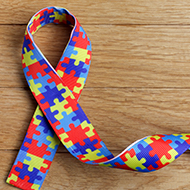
MMI awards funding to project aiming to identify workplace stressors.
A research project that will address the workplace stressors that autistic veterinary professionals face has been awarded £20,000 by the RCVS Mind Matters Initiative (MMI).
The funding that is being awarded comes from the Sarah Brown Mental Health Research Grant, set up in memory of RCVS Council member Sarah Brown, who passed away in 2017. The grant is awarded annually to a research project that explores an aspect of mental health and wellbeing in the veterinary profession.
Last year, two grants were awarded, one to a project from the RVC and British Veterinary Ethnicity and Diversity Society (BVEDS) which explored the mental health impacts of racism within the veterinary profession, and one to a project which looked into the moral injury in veterinary surgeons and the impact of this on their mental health, from Kings College London.
This year, the funding has been awarded to a project that explores workplace related stress for autistic veterinary professionals. The project, led by researchers from the veterinary school at the University of Nottingham, proposes that autistic veterinary surgeons may be especially susceptible and vulnerable to mental health issues.
The researchers for the project felt that upon identifying the various workplace stressors that affect autistic veterinary professionals, they could then make recommendations for reasonable workplace adjustments, which would help to create healthier working environments.
Involving 20 autistic veterinary surgeons, the project will identify the factors that contribute to either a 'good' day or 'difficult' day at work for these veterinary professionals, and will then develop ideas for adjustments that could improve their working days.
Besides the in-depth study with these 20 autistic vets, the researchers will also carry out a further survey of individuals with autism spectrum disorder within the wider veterinary profession, which will be used to discover how frequently the workplace characteristics that cause a 'good' or 'difficult' day occur, and the impact that these have on the professionals mental health.
Using this information, the researchers will then develop guidelines for workplace adjustments that can be adopted by the veterinary sector which will help to improve wellbeing in the workplace for autistic veterinary professionals. To raise awareness of the unique issues that autistic veterinary professionals face, the findings of the study will be submitted to peer-reviewed journals, presented as a report to the RCVS Mind Matters Initiative Mental Health Research Symposium, and sent to the sector's press.
Lead researchers on the study, Dr Kirstie Pickles and Dr Brad Hill commented: “We are absolutely delighted to have been awarded this year’s Sarah Brown Mental Health Research Grant. We are passionate about raising awareness of autism spectrum condition in the veterinary profession. Having both received a diagnosis of autism, we acknowledge that we bring many strengths to the veterinary workplace, but also experience specific challenges. We hope that this project will identify common challenges for autistic vets so that more focussed workplace guidance can be recommended.”
Lisa Quigley, the manager of the Mind Matters Initiative, said: “We’re thrilled to award this year’s research funding to the team at the University of Nottingham’s veterinary school. We were impressed with how well-researched their application was and this is clearly an area that the lead researchers are passionate about through their own lived experience.
“This research project will also build on the work that RCVS have been doing to raise awareness of neurodiversity in the veterinary professions. We look forward to hearing how the research progresses and reviewing the recommendations for workplace adjustments that will help to support the mental health of autistic veterinary professionals.”
To be involved in this study, if you are a veterinary surgeon with lived experience of autism, please contact kirstie.pickles@nottingham.ac.uk or brad.hill@nottingham.ac.uk for more details.



 The latest
The latest